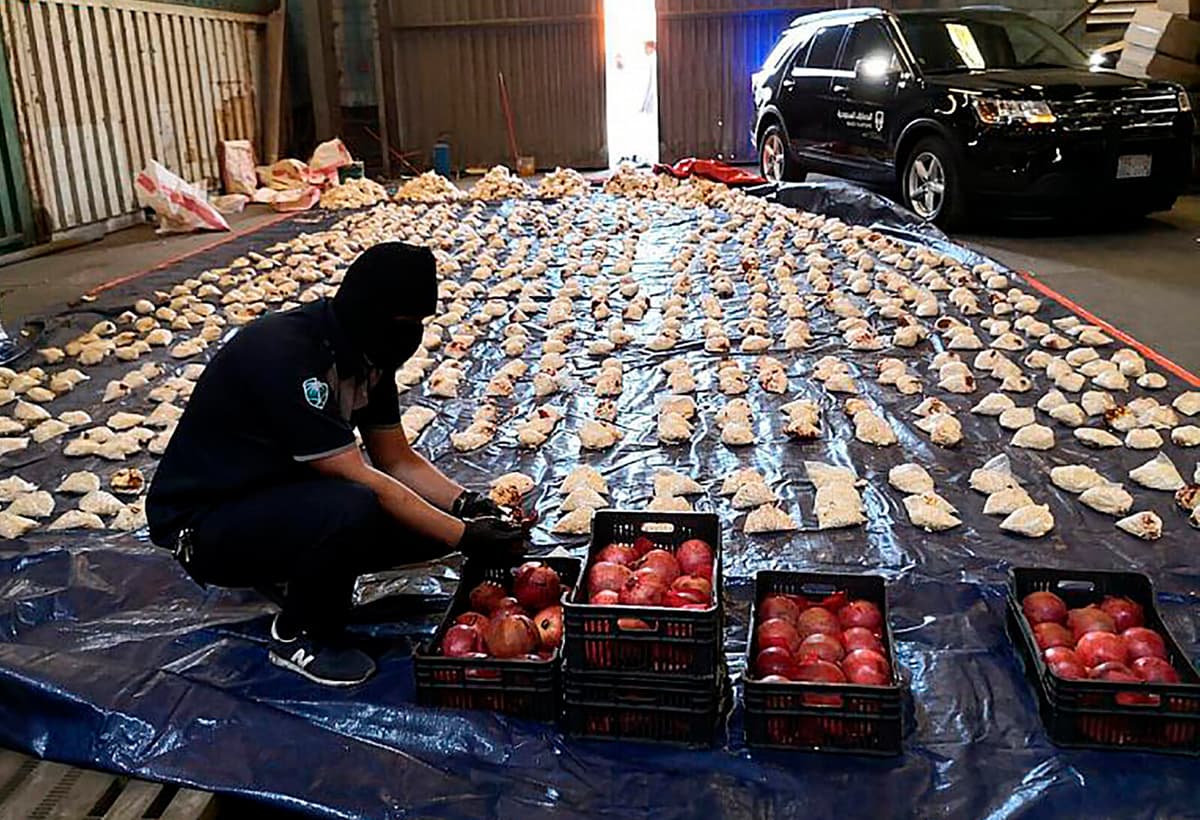Captagon is a type of amphetamine that has become a popular illegal drug in many parts of the Middle East. The production of a pill in Syria can cost just a few tens of kronor, while they are then sold for up to 200-300 kronor each.
The business generates around ten billion US dollars per year, according to researcher Caroline Rose at the think tank New Lines Institute in Washington told The New Yorker. This is at the same time as the country's entire gross national product, according to the World Bank, is nine billion dollars.
Important parts of the army, of the security apparatus, are directly involved in the drug trade, said Michael Kenney at the University of Pittsburgh to The New Yorker before the regime's fall.
The government itself – to the extent that it existed – became heavily dependent on Captagon exports to be able to govern.
Moral Display
This dependence consists, among other things, of a fine-meshed network for production and distribution – smuggling with mutual threats and hooks. So one of the new Syria's most important questions is whether the terrorist-listed Islamist militia HTS (Hayat Tahrir al-Sham), which led the offensive against the Assad regime, will also become dependent on the drug empire: whether it wants to keep it or dismantle it.
There are reports that Captagon was smuggled through rebel regions at the beginning of this decade, and that the deliveries were then "taxed", says Caroline Rose.
It would thus be a kind of approval of the trade from HTS's side.
On the other hand, HTS has more recently definitely tried to crack down on illegal drug trafficking, and then blamed the regime. It can also be a tool for them, a way to show themselves morally superior.
Advertisement
Eliminated 99 Percent
If HTS leader Ahmed al-Sharaa wants to bet on that line, he can seek guidance 250 miles east, in Afghanistan. When the Taliban first took over the country at the end of the 1990s, leader Muhammad Omar did something radical.
Opium, the raw material for all the world's heroin, played a similar economic role for Afghanistan back then. But in the summer of 2000, Omar declared opium "un-Islamic" and managed to eliminate 99 percent of production.
In the short term, it was very successful. The brutal and women-oppressing Taliban showed that they could get positive attention too – which would be very welcome for HTS as well.
But the continuation shows how easy it is to fall back into bad habits. Just over a year later, after the 9/11 attacks in 2001, the war broke out again. Money for weapons became the top priority, and the lucrative opium trade took off again.






